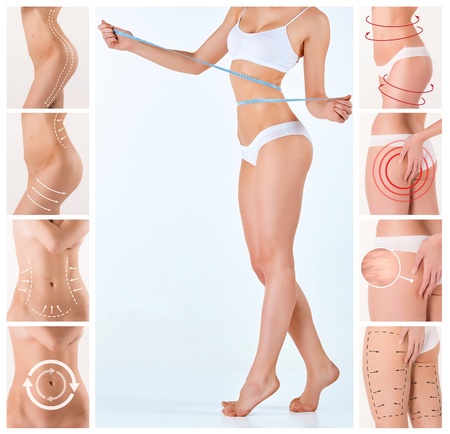
We all wish to put our best foot forward, and present ourselves in the most flattering light to the world around us. Yet somewhere along the line society has stripped us of our right to decide just what that feels and looks like even though this deserves to be an inherently individual decision. It is not the degree to which we approach perfection that defines us; rather, it is our subtle imperfections that make us who we are.
Several years ago, after 11 years of cycling and logging close to 15,000 miles on his bicycle, my husband suffered his first major wipeout. Landing hard on the concrete and cracking his helmet, his biking buddies called an ambulance and he was whisked away to the emergency room.
After several hours, x-rays, and bags of intravenous fluids, he was discharged. Upon returning home, Mark was just about to cut off his hospital bracelet when our younger daughter exclaimed, “No, Daddy, you have to keep that on! It’s your badge of honor. It shows how brave you were in the hospital.”
Battle Wounds
I have heard my daughter share this pride about her “battle wounds” on numerous past occasions, always following each of her surgeries. Certain “markings” that decorate our bodies take on special significance. Many women I know think that the presence of a scar makes a man much sexier, since there is usually an interesting story regarding how it was earned.
Even in Medieval days, gashes inflicted upon a man during a sword fight were proudly displayed, somehow adding to his intrigue and bravado. American Indian lore is rich with descriptions of tribal body markings, many of which denote the successful accomplishment of certain difficult tasks undertaken as part of the ceremonial rite of passage into manhood. Such imperfections are congratulated and celebrated.

Are We Redefining Superstar?
Professional sporting events often provide us with a bird-eye view of this very situation. When an NFL football player, especially one of noteworthy status, gets injured mid-tackle and necessitates being carried off the field, the crowd jumps to its feet and thunderously applauds the player. His bravado amidst his pain, and perhaps the thought of him being placed on the DL due to a possible surgical repair, has made him an instant hero. The crowd does not mind that the player cannot walk unaided, or in some cases has been rendered unconscious; they only see the positive attributes of their football hero.

When the Halftime show begins, however, society must place its shame-colored glasses on. Any female performer, even a Grammy Award-winning star, is immediately subject to scrutiny. Any slight deviation from the world’s expectations of a “model-thin” physique incites criticism and social media slander.
How quickly we forget that we just heralded an injured male athlete!
How many modern men, I wonder, find a bit of “extra cushioning” on a woman’s midsection appealing, and how many sadly find it grotesque? Who are we, and at what point during our evolution did we take a seriously wrong turn?
Society has placed a tremendous double-standard burden on females, particularly those in the limelight. Women so often feel the need to camouflage and cover up imperfections often perceived by others as “flaws”. The make-up and plastic surgery industries reign supreme as the quintessential examples of preaching this to women.
From under-eye dark spots to small breasts to postpartum stretch marks, society has evolved to a level of such artificial perfection that these extremely human characteristics are deemed unacceptable. How did we arrive at such a place, where bellies have to be flat to be sexy and freckles must be covered by concealer, while “battle wounds” are proudly displayed?
“Perfection” Itself Is Not Real Life
Our bodies tell the story of our lives, each experience establishing and etching a place of honor. To cover them up is tantamount to discarding a part of our history, thereby diminishing a portion of our humanness. Once we are comfortable embracing all of our physical being, we will find that we become more highly evolved; and living and thriving in the world from this place provides us with the distinct advantage of a fabulous view!






